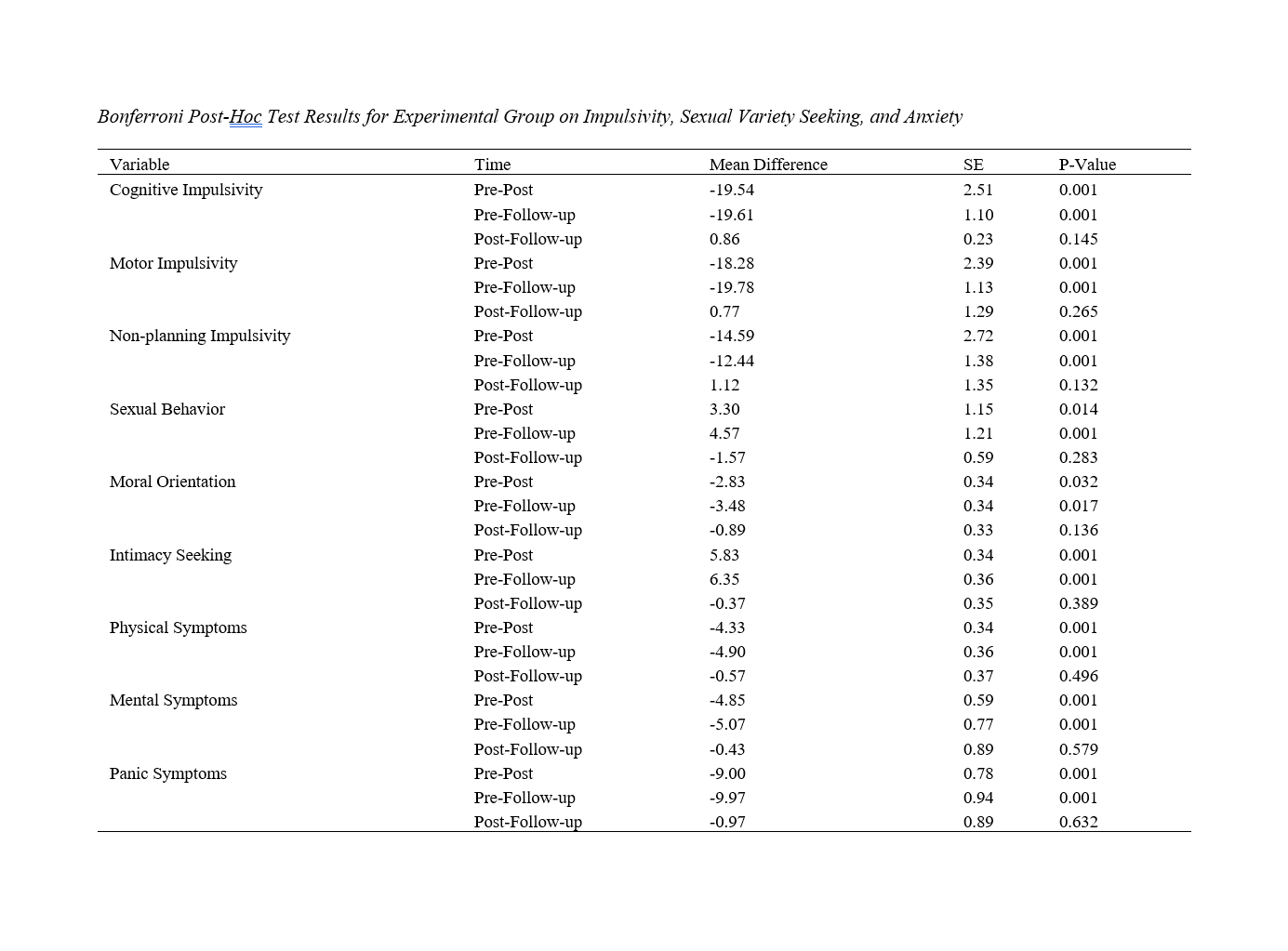The Effectiveness of Schema Therapy on Impulsivity, Sexual Variety Seeking, and Anxiety in Borderline Patients
Keywords:
Schema therapy, Impulsivity, Sexual variety seeking, Anxiety, Borderline personality disorderAbstract
Objective: Borderline Personality Disorder (BPD) is a complex disorder associated with significant prevalence, mortality, and public health costs. This study aimed to determine the effectiveness of schema therapy on impulsivity, sexual variety seeking, and anxiety in borderline patients.
Methods and Materials: This study was a clinical trial with pre-test, post-test, and follow-up along with a control group, conducted in a semi-experimental research design. The statistical population consisted of individuals with BPD who visited psychology and psychiatry clinics in Sari from April to June 2022 (N=172). The sample was selected using the convenience sampling method and included two groups of 10 participants each (experimental and control). The data collection tools were the Structured Clinical Interview for DSM-IV Axis II Personality Disorders (First, Spitzer, Gibbon, & Williams, 1997), Beck Anxiety Inventory (Beck & Steer, 1990), Barratt Impulsiveness Scale (Fossati et al., 2002), and Sexual Variety Seeking Questionnaire (Aref-Nazari et al., 2011). Data were analyzed using repeated measures ANOVA with SPSS.22 software.
Findings: The results indicated that schema therapy was effective in reducing impulsive behaviors (F=66.00, P<0.001), sexual variety seeking (F=29.82, P<0.001), and anxiety (F=3.00, P<0.001) in borderline patients.
Conclusion: It can be concluded that schema therapy is effective in reducing impulsivity, sexual variety seeking, and anxiety in borderline patients, and can be utilized to mitigate the psychological problems in these patients.
Downloads

Downloads
Additional Files
Published
Submitted
Revised
Accepted
Issue
Section
License

This work is licensed under a Creative Commons Attribution-NonCommercial 4.0 International License.








